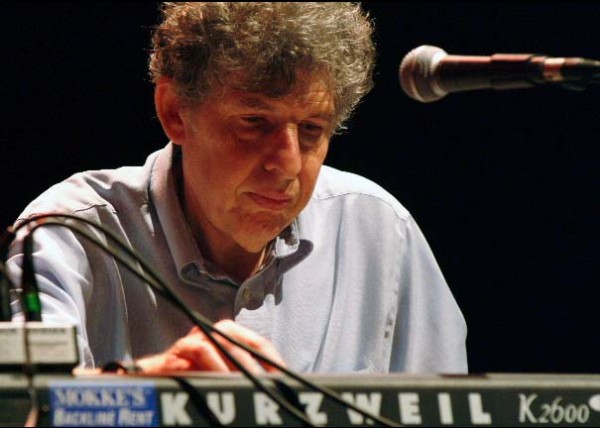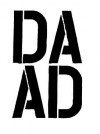Certain Sundays presents a summer special in collaboration with Festival Relevante Musik featuring composer-improvisor and electronics wizard Richard Teitelbaum.
In addition to a solo performance on sampler and “little instruments”, Teitelbaum will share examples and thoughts on his 50+ year-long career, spanning interactive operas, free improvisation, work with Musica Elettronica Viva and more.

Richard Teitelbaum has been active as a composer and performer for more than four decades, performing throughout world. His music includes notated compositions and free and structured improvisations in acoustic, electronic and electroacoustic media, often combining traditional western and non-western instruments with electronics.
In the 1960s he co-founded the pioneering live electronic music group Musica Elettronica Viva with Frederic Rzewski and Alvin Curran in Rome. In 1970 he formed one of the first intercultural improvisation groups, the World Band, at Wesleyan University and has continued to work with traditional musicians from many non-western cultures. In 1976-77 he spent a year in Tokyo on a Fulbright, studying shakuhachi with the great late master Katsuya Yokoyama, while composing Blends, for shakuhachi, Moog synthesizers and percussion. A recording of it was released in 2002 by New Albion and named one of the ten best classical albums of the year by The Wire magazine in London.
In the 1970’s he began composing live, interactive computer music. His “digital piano system” combined mechanically-played acoustic pianos with computers to play complex “acoustic computer music” on three grand pianos simultaneously. He performed solo with this system in Berlin’s Philharmonic Hall, the Concertgebouw in Amsterdam, the Pompidou Center in Paris, Almeida Theater in London, and many other venues. While on a DAAD residency in Berlin, a commission from the West German Radio in Cologne enabled him to compose his Concerto Grosso (1985), which expanded the piano system by adding synthesizers and two wind players as part of the interactive mix. The piece was awarded a prize from the Austrian Radio and the Ars Electronica Festival, and a recording was released on the Hat Art label.
Teitelbaum has created two operas dealing with Jewish mystical expressions of redemptive hopes: Golem, An interactive Opera (1989), and Z’vi, (2001-) based on the 17th Century Jewish-Moslem Messiah figure Sabbatai Z’vi. He received a Guggenheim Fellowship to create this piece, which has since been performed at Bard College’s Fisher Center, the Venice Biennale and the Center for Jewish History in New York City. He has also composed works for pianists Aki Takahashi and Ursula Oppens, the latter with the support of the Meet the Composer/Readers Digest Fund grant, and SoundPaths for chamber group and computer which was commissioned by the Fromm Music Foundation and the Da Capo Chamber players and premiered in New York City in 2009. In the fall of 2012 Teitelbaum performed with Musica Elettronica Viva in residency at Bard College and at the Kitchen Center in New York CIty.
He has worked with many jazz and improvising musicians such as Steve Lacy, Anthony Braxton, George Lewis, Derek Bailey, Evan Parker, Carlos Zingaro, and many other important artists, including John Cage, Morton Feldman, Philip Glass, Nam June Paik, The Living Theater and many others.
Teitelbaum is a Professor of Music at Bard College, where he has taught in the undergraduate and graduate programs for more than twenty five years.
In Verbindung mit:






